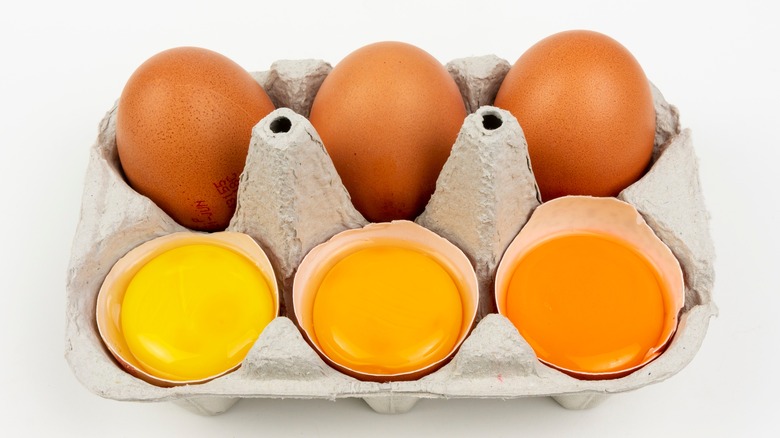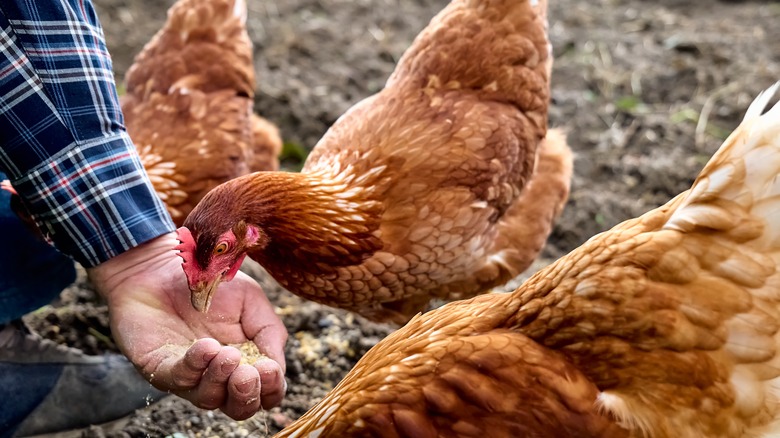The Myth Behind Bright Orange Egg Yolks
Maybe you've heard stories about how certain colored egg yolks are good or bad for you. Some say that deeper orange yolks are unsafe; others say that they're actually higher quality than the more common yellow variety. But here's the truth: You can block all that out of your mind, as there's little to no nutritional difference between orange and yellow yolks.
Differences in egg yolk color can typically be chalked up to variations in chickens' diets. If the hens are chowing down mostly on wheat, their eggs will have a paler, yellow shade. Deeper yellow and orange colors typically suggest that the hens have been eating more soy or corn.
The seasons can also affect yolk colors. Eggs laid in the winter may have lighter yolks because chickens aren't eating as much grass, which carries carotenoids — a pigment that makes for deeper yellow and orange yolks. But it's not always the case, as not all chickens will be raised in grassy areas. If they're kept away from grass, they can still be fed foods with carotenoids.
In any case, the truth is that these color differences are mostly aesthetic.
It's all about the carotenoids
Carotenoids are the main factor behind differing egg yolk colors — the more of them a chicken eats, the deeper orange the yolk. They're a type of naturally occurring pigment in plants, and there are a few hundred different types of carotenoids with slight chemical differences. Carotenoids are antioxidants that are regarded as good for human health. While they're found in eggs, dietary advice tends to recommend getting them directly from fruits and vegetables like carrots, pumpkins, and sweet potatoes. Unsurprisingly, they're often found in very orange produce.
Orange yolks may indicate that a hen has been raised free-range, grazing in grassy areas with access to grass and foods like alfalfa and marigold that have more carotenoids in them. But don't jump to this conclusion if you spot an orange yolk, as it's not hard for farmers to feed carotenoid-heavy foods to chickens that are kept in cages. The only way to know how a chicken is raised would be to see the farm firsthand. You can look for terms like "free range" on packaging, but these phrases are often not used accurately by producers.
Another yolk tale to ignore
It's been suggested that yolks may change color as eggs age — the more prominent legend seems to be that they get darker over time. That's also false. There's no way to tell how long an egg has been in the carton or the refrigerator based on its color. Interestingly, there is one tiny grain of truth here — eggs from older hens tend to be lighter in color than those from younger ones. However, this makes no difference when it comes to nutritional content or safety.
If you're truly worried about whether an egg is safe to eat, use your nose instead of looking at the yolk. Rotten eggs will have a nasty, sulfur-like smell, and unless your sense of smell is seriously damaged, you won't miss it. If your eggs are cracked, that's also a warning sign as cracks can let bacteria in, but just looking at the yolks simply won't help you.



